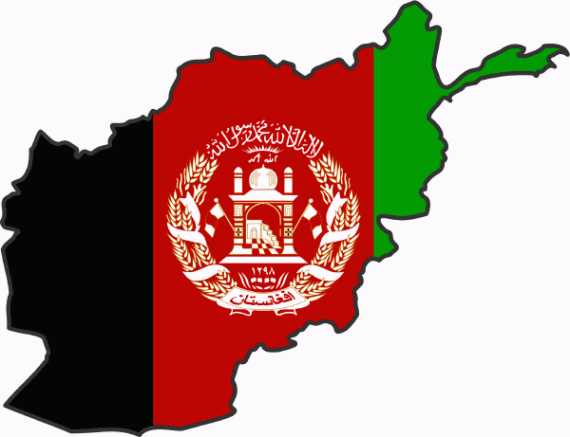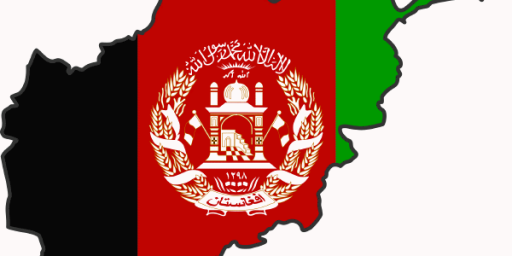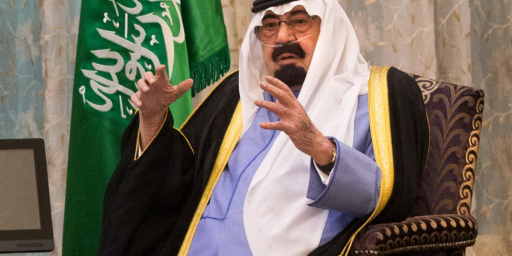More Election Protests In Afghanistan
There were more protests in Afghanistan yesterday over election results that are increasingly coming into dispute:
KABUL, Afghanistan — After a potential opening last week to ease Afghanistan’s political crisis, the presidential candidate Abdullah Abdullah signaled on Sunday that more deadlock was ahead, promising again that he would not accept any decisions made by the country’s election commission after the panel rejected a list of his demands.
“From today onward, we reject all the decisions and activities of the Independent Election Commission, which will not have any legal value anyway,” said Baryalai Arsalai, Mr. Abdullah’s campaign manager. “They have no intention to assess the fraudulent votes and separate the dirty votes from the clean votes.”
In the two weeks since the presidential runoff vote, the election process has been shadowed by accusations of fraud and conspiracy, with the Abdullah campaign accusing a range of officials all the way to the presidential palace of rigging the vote against him. There have been dramatic protests flooding the streets of Kabul, and secretly captured phone calls that allegedly show election officials conspiring to rig the race.
The United Nations had tried to encourage the Abdullah campaign to re-engage with the election commission. After some persuading, the campaign agreed, issuing a letter outlining 13 demands that it said would help mitigate the alleged fraud, which the campaign has said ranges from 1.5 million to 2.5 million falsified ballots. In response, the campaign received a letter from the commission on Sunday rejecting the demands.
Now the process is up in the air again, along with millions of Afghan voters left to wonder whether their ballots will count, and with Western officials watching in concern as they try to organize a military withdrawal. Apart from public admonitions by the United Nations and the Obama administration for the Afghan candidates to follow the electoral process as laid out under law, the threshold for any sort of international invention is unclear.
The next official step for the election commission is likely to be the announcement of preliminary results, tentatively set for July 2. While Mr. Abdullah has demanded a stop to the vote counting, the commission has ignored the request and has continued tallying the ballots.
Earlier, the commission declined to release partial results, fearful of stoking tensions. Now the commissioners are insisting that partial results will be released on time, a move that is sure to incite more anger from Mr. Abdullah and his supporters. While thousands of his followers have so far protested peacefully in the streets, many fear that the release of the results — which are expected to show his opponent, Ashraf Ghani, with a sizable lead — could heighten the crisis.
At issue is whether the more than seven million Afghans turned out for the runoff election, a figure that eclipsed the first round. While many suspect the number is too high, attention began to home in on regions of the country supportive to Mr. Ghani. In those areas, voter turnout surged, in some cases tripling.
Mr. Abdullah cried foul almost immediately, sure that his opponent, with the help of the election commission and others, had engineered extensive fraud. Having lost the 2009 presidential election in a race marked by such fraud, Mr. Abdullah was primed to speak out this time around.
His campaign also produced what it said was evidence of one of the top election officials’ consorting with members of Mr. Ghani’s team to stuff ballots and install friendly officials in various provinces.
While Mr. Ghani has denounced the tapes as fake, very few others have publicly challenged the credibility of the intercepts. Instead, most have wondered aloud how the campaign managed to get its hands on illegal recordings.
The next step will be on Wednesday when the commission is set to announce the results, but that could only be the beginning. If Abdullah loses and challenges the results then the Presidential succession will be thrown into doubt, as will the future of U.S. troops in Afghanistan.




To the neocons: “How’s that nation building working out for you?”
The US and the Taliban are on the same side. Last year, Karzai accused the U.S. and Taliban of conspiring to keep troops in Afghanistan. It’s hard to fathom at first but quite believable.
THE US remains because we like being there to keep an eye on Iran, Pakistan, Russia, and China. The US will maintain bases after the “withdrawal”
http://www.newrepublic.com/article/world/magazine/92775/taliban-conspiracy-theory